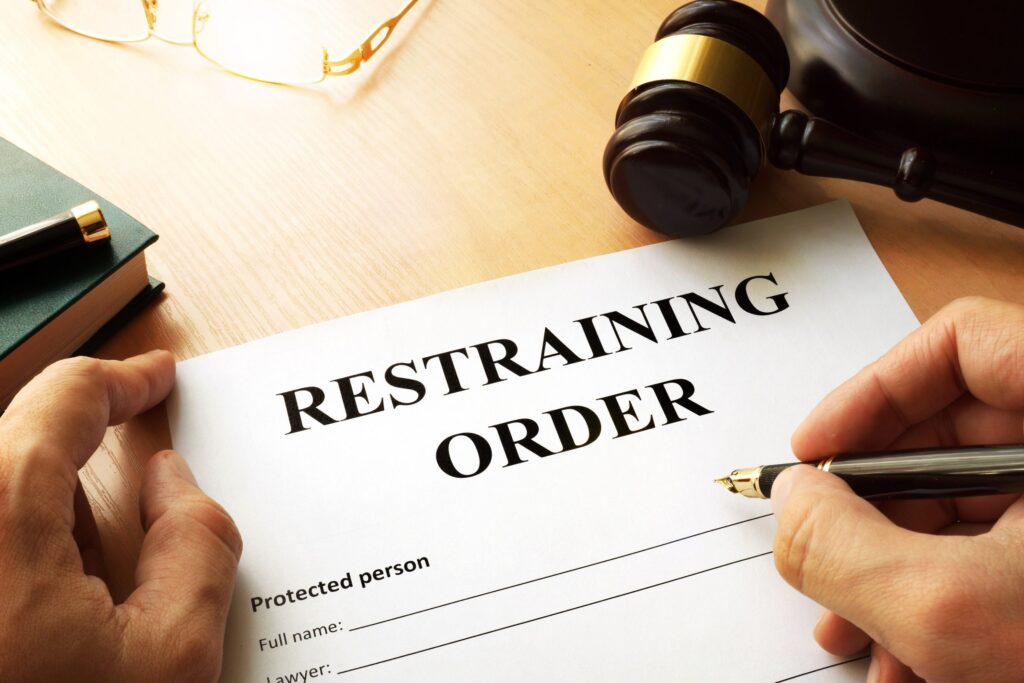Louisiana Protective Order Laws for Domestic Violence

A protective order is also known as a restraining order, injunction against abuse, peace bond, or criminal order of protection. In Louisiana, protective order laws vary based on many different factors, however, in general, they operate to provide protection to a family member when they have been abused by another family member.
If a protective order is granted, then if the abuser violates the order, they will face penalties ranging in severity depending on the number of violations or the specific details of the violation. If you were the victim of family violence, you are protected under Louisiana law and you should understand your rights. Whether or not you’re married to your abuser, domestic violence is inexcusable and must be dealt with under the law.
The Johnson Firm is here to protect our clients and represent them with compassion. We have helped hundreds of abuse victims achieve safety and normalcy. Keep reading to learn about Louisiana protective order laws, then call The Johnson Firm at (337) 433-1414.
Types of LA Domestic Violence Protective Orders
As mentioned above, protective orders may also be called restraining orders or injunctions against abuse. Although these terms are used interchangeably, there are several distinctions. The type of order you can receive will depend on the unique facts of your case.
Protective Orders
In Louisiana, a protective order is issued by a judge after a court hearing at which the victim and their abuser are present. These orders are granted under Louisiana protective order laws including the Domestic Abuse Assistance Act, the Protection from Dating Violence Act, or the Children’s Code Domestic Abuse Assistance Act.
Temporary Restraining Orders
A temporary restraining order (TRO) is issued by a court in response to a request for protection. These are issued prior to the hearing where the abuser is present and expire on the day of the hearing.
TROs are helpful in situations where there is an immediate danger of abuse. For instance, if a victim is in danger of being abused when they return home from the ex parte hearing (a hearing that does not require all parties to be present). However, immediate and present danger is not a requirement for a TRO.
When issuing a TRO, the judge will consider the victim’s history and threats of abuse. As soon as the order is issued, the abuser will be notified. The court will then assign a hearing date, usually within 21 days of the ex parte hearing, where the victim and abuser are present.
Injunctions Against Abuse
An injunction is another type of protective order issued after a hearing under the Code of Civil Procedure Articles, the Post-Separation Family Violence Act, or with a divorce proceeding. A preliminary injunction is ordered after a hearing, while a permanent injunction is ordered after a trial.
Criminal Orders of Protection
In Louisiana, a criminal court can issue an abuse prevention order at the same time as a criminal charge. The abuser (defendant) will be charged with a crime and ordered to stay away from the abuse victim.
A criminal order of protection may include conditions of the abuser’s release as well as bail restrictions and probation conditions.
How do they work?
While each of the above protective orders have their differences, one fact remains the same: they establish what the abuser can and cannot do after receiving the order. Depending upon the unique facts of your case, a judge may order the following provisions:
- Cease abuse
- No contact, whether by phone, email, letter, or other communication
- Pay temporary child support and/or make payments on the mortgage you and the abuser share
- Award you with exclusive use of the home or car owned by you and your abuser
- Relinquish firearms
- Attend a treatment program
- Stay away from your children or for supervised visitation
If the abuser does not follow the guidelines, they may have violated the order. In that case, the victim can contact the police and the court to enforce the order. When the victim contacts the police, the police will likely examine any evidence that the victim can present.
If the police feel that the order was violated, they will arrest the abuser. Depending on the violation, the abuser may receive a misdemeanor or felony charge.
Help With Louisiana Protective Order Laws
Victims of family violence need protection. Louisiana has many laws and statutes in place that protect victims and punish offenders, but an experienced Lake Charles family violence lawyer can help you in countless ways, such as:
- Helping you find shelter and medical care
- Getting a temporary or permanent protective order
- Filing for divorce
- Getting custody of your children
- Representing you in court
The first step in ending the cycle of abuse is to recognize that you need help. Fortunately, our Lake Charles Domestic Violence Lawyers are experienced and passionate about helping victims of domestic violence live safer, more satisfying lives. Call (337) 433-1414 today for a consultation.